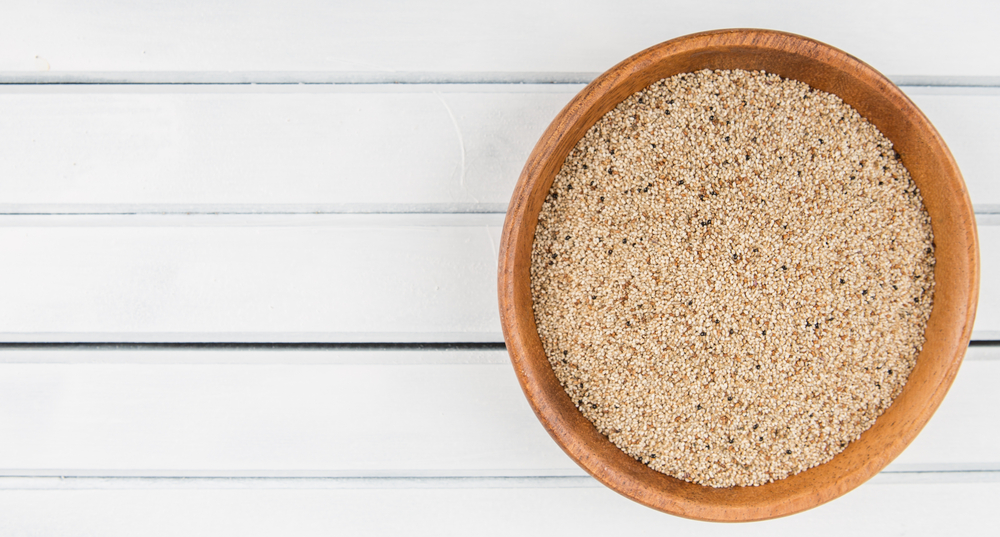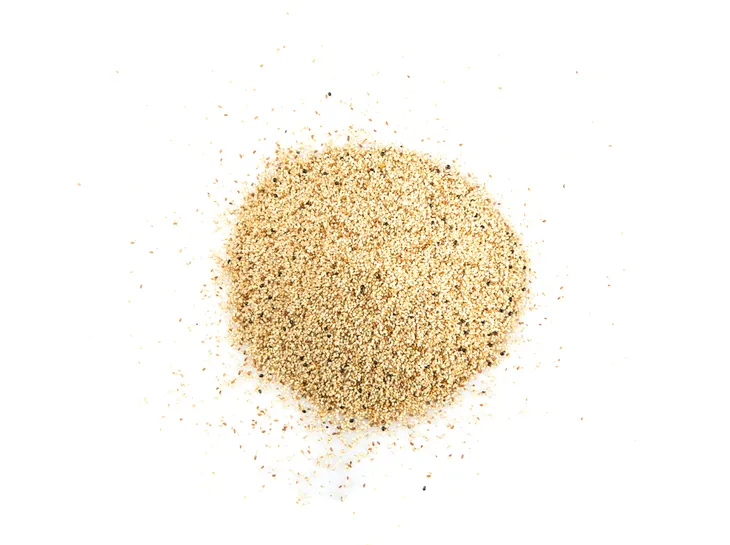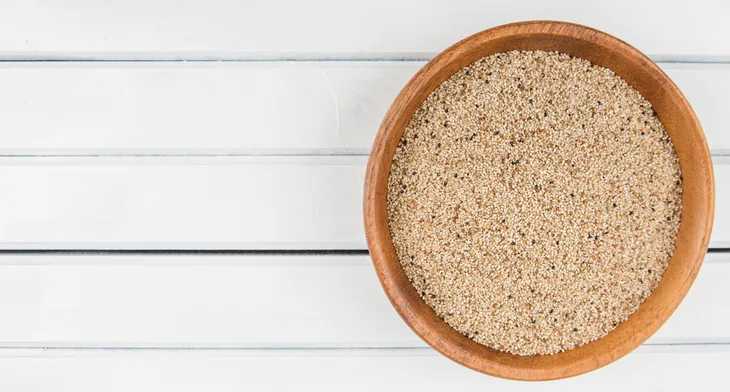Gwyneth Paltrow is never shy about plugging her favorite diet and fitness products. While many of her claims (I’m looking at you jade eggs) may be a bit questionable, it turns out her love of a certain tiny grain, known as teff, actually has reputed health benefits. Yes, I double checked, these benefits are actually backed by real scientific evidence.
Teff, which hails from Ethiopia, has some pretty impressive benefits for such a tiny grain (about the size of a poppy seed). The superfood used to make injera (a type of sourdough flatbread), can be considered a superfood for its many offerings. For instance, teff is vegetarian and gluten-friendly, and it’s also been linked to blood sugar control, and more…
Blood Sugar Control
According to DiabetesSelfManagement.com teff can be considered among the best grains for blood glucose control. The source explains that teff is a slow-digesting carbohydrate. And, much like spelt, this grain has a low glycemic index, which means that it’s less prone to causing a spike in blood glucose after consumption.
For diabetics, teff can help control blood sugar levels because it’s a resistant starch. And due to its rate of slow digestion, teff fills you up longer and can be an aid as far as healthy weight maintenance.
It’s Heart Healthy
LiveStrong dubs teff a heart-healthy grain. Not only is this grain provide adequate plant-based protein and heart-healthy unsaturated fats–unprocessed teff has also been linked to better cardiovascular health.
Dr. Axe also recommends teff as part of a heart-healthy diet. According to the good doctor, diets rich in teff have been linked to lower blood pressure, healthy blood vessel maintenance, and a lower risk of heart attack and stroke.
Superfood = Super Nutrition
When it comes down to pure nutritional data, teff certainly boasts a bounty of vitamins, minerals, and amino acids.
Teff is rich in easily absorbable iron, protein delivered by eight essential amino acids, calcium, copper, vitamin C (rare in grains), manganese, aluminum, barium, thiamin, and phosphorous.
Constipation No More
We are happiest when our bodies are functioning normally. When we’re constipated our bodies and minds can suffer—and we may experience abdominal pain, gas, bloating, irritability, fuzzy memory, and inability to focus.
The good news is that teff can help you go thanks to it’s rich fibre content. And regular, healthy bowel movements make us all happier, healthy, more satisfied individuals.
Teff is Gluten-Free
If you suffer from celiac disease, you may find some starchy solace in teff. According to Denver-based master nutrition therapist, Debbie Allen, MNT, CNHP, teff is among the whole grains suitable for those with gluten intolerance
In fact, the Huffington Post’s UK Lifestyle nutritionist, Alice Mackintosh, explains that those sticking to a gluten free diet (due to allergy or intolerance) can find gluten-friendly alternatives in grains like teff, millet, buckwheat, wild rice, amaranth, millet, quinoa, and corn.
Vegetarian and Vegan Friendly
When it comes to switching to a vegan or vegetarian diet, insufficient protein is often a major concern. However, nutritional experts recommend a well-thought-out diet rich in plant-based protein sources will ensure your nutritional needs are met.
Thankfully, certain plant based foods, such as teff, are proven to contain rich stores of protein per serving to aid weight maintenance, appetite satisfaction, and overall muscle strength.









